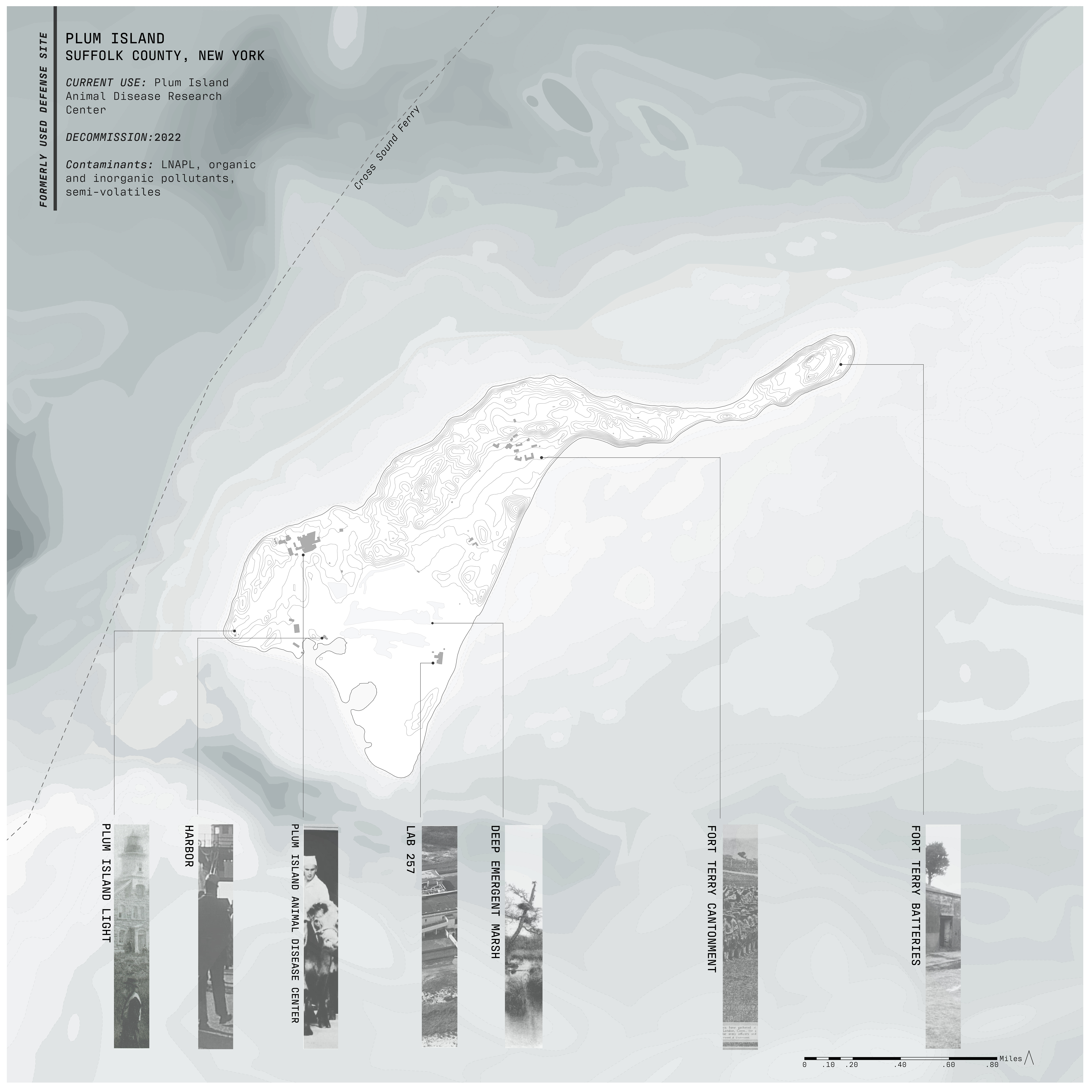
Decommission as Design: Reconciling Opaque Landscapes
Thesis
University of Virginia
In the United States, colonial power is often perpetuated by limiting access to and information about particular sites. These opaque landscapes form a substantial network, which includes military, industrial, and waste geographies. Landscape architecture practice has largely focused on what opaque sites are to become through redevelopment. While designers are well positioned to translate what is obfuscated or forgotten in these landscapes, by focusing only on the designed outcome of decommission, this opportunity for decolonization and translation is overlooked. If decommission were to be treated as design, how might we better mitigate the social impact of entangled histories embedded in contested sites? Drawing from existing policy on site remediation and decommissioning, design discourse on military and waste landscapes, relational ontology, and visual discourse analysis, I propose an expanded methodological and representational approach that creates a new space for design within the decommission process motivated by a relational understanding of site history.
This speculative process is explored through the case study of Plum Island, New York, operated by the Department of Homeland Security and home to Fort Terry and the Plum Island Animal Disease Research Laboratory, set to be decommissioned in 2022. More broadly, the methodological approach developed through this research is proposed as a landscape analysis method. This alternative method recognizes indeterminacy and “blank spots” as valid ways of knowing opaque sites, and proposes centering this unruliness to better reconcile complex site histories through research and practice.
